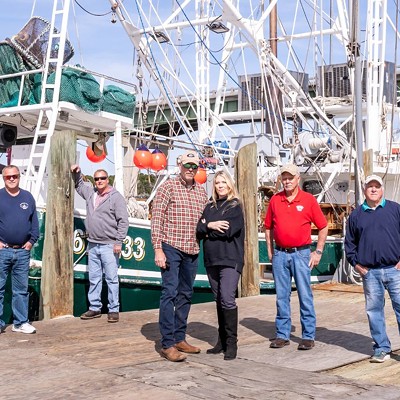What the Flook?
[
{
"name": "Air - MedRect Combo - Inline Content 1",
"component": "14680855",
"insertPoint": "7",
"requiredCountToDisplay": "5",
"parentWrapperClass": "fdn-ads-inline-content-block"
},{
"name": "Air - MedRect Combo - Inline Content 2",
"component": "14680856",
"insertPoint": "15",
"requiredCountToDisplay": "9",
"parentWrapperClass": "fdn-ads-inline-content-block"
},{
"name": "Air - SVP - Leaderboard - Inline Content - 2",
"component": "16852291",
"insertPoint": "10",
"requiredCountToDisplay": "10",
"parentWrapperClass": "fdn-ads-inline-content-block"
},{
"name": "Air - SVP - Leaderboard - Inline Content - 3",
"component": "16852292",
"insertPoint": "20",
"requiredCountToDisplay": "18",
"parentWrapperClass": "fdn-ads-inline-content-block"
},{
"name": "Air - SVP - Leaderboard - Inline Content - 1",
"component": "16852290",
"insertPoint": "25",
"requiredCountToDisplay": "22",
"parentWrapperClass": "fdn-ads-inline-content-block"
}
]
For the casual fan, the thought of Irish music conjures aural images of manic fidding and riproaring drinking songs about fighting the English.
More serious enthusiasts of Irish “trad”, or traditional music, however are aware of the rich Irish woodwind tradition, represented not only by the traditional uileann (“elbow”) pipes but by the classic wooden flute often called the “Irish” flute and by the tin whistle, also known as the pennywhistle.
The Anglo-Irish ensemble Flook -- originally called “Fluke” until they found out another band copyrighted the name -- relies on that woodwind tradition, and has carved out such a unique place for itself in the Celtic music universe that they were last year voted Best Group in the BBC Folk Awards.
Fittingly, Flook brings its mystical yet accessible Celtic sound to the Savannah Music Festival for two shows the evening of St. Patrick’s Day, 7:30 and 9:30 p.m. in the American Legion post downtown on Bull Street, a fitting venue for an Irish rave-up.
Members of the group include Michael McGoldrick sitting in for Sarah Allen on maternity leave, Ed Boyd on guitar and bouzouki, and John-Joe Kelly on bodhran and mandolin.
Flook cofounder and flutist/tin whistle player Brian Finnegan spoke to us last week from Manchester, England, where the group is rehearsing for its winter/spring tour.
I assume it’s always extra-special for an Irish musician to play a concert St. Patrick’s Day.
Brian Finnegan: It’s hit or miss really. (laughs) It depends on where you are. We’re really lucky that our profile has sort of increased, so now can choose where we want to play on St. Patrick’s Day. For the really big bands, that’s the time of the year they can choose where they’ll play, and everyone else has to make do with what’s left.
But to be in Savannah -- it’s doesn’t get much better than that. We’re all dead-excited to be playing there.
Last year we were in Wassau, Wisconsin, way up in the north of America. There were two or three thousand people there. It was amazing -- such an outpouring of energy and endorphins.
How do you explain the continuing popularity of traditional Irish music? In America it never seems to go out of style.
Brian Finnegan: Well, the music comes from a country that has been quite oppressed for a number of years, so it’s a way to tell your story. In the States it’s so popular because even if you’re not second or third generation Irish, you certainly know someone who’s Irish.
For me also I have to say that with Irish music there’s a real connection with sacredness and the spiritual side of things. It’s quite mystical, really.
Irish music just seems to have a universal appeal. It travels really well. Also, it’s dance music, so you have this joie de vivre that’s really infectious.
I think the States are one of the few countries in the world where the audience can really kind of tap into what the band is doing. It all resonates in the right place. It’s not just that you need to have a great band, you need a fantastic audience. You need both to have a good gig. We’ve always found that the audiences in the States are very vocal. You know that they’re there. They get into it, and not even at the end of a set -- you get into it during the set.
We generally get the usual fiddle-and-pipe-based Irish sound here. But Flook is centered around flutes and whistles.
Brian Finnegan: Well, I’ve played in a lot of bands with fiddles before. One thing about that sound, it’s unmistakeably Irish. The woodwinds, though are not quite as jagged or edgy -- they flow. Plus you get that effect against the rhythm section with the bodhran and the guitar played so tight together, one high and one low, the sound of the drum and the chord. Overall it’s a very hypnotic sound.
I view the flute as sort of an extension of the human voice, if it’s played well. It’s viewed that way in many cultures around the world, for example the American Indians with the flute and drum. It works for us in particular because we’re not quite a pure Irish band, and we’re also not an English band. So we have the luxury of playing music from many different traditions. If I’m playing a tune originally from Sweden, I don’t play it thinking, hey, this is Swedish -- I just think, oh it’s a really beautiful tune.
Co-founder and flutist Sarah Allen is on sabbatical having a baby. We hear one-time Flook member Michael McGoldrick, better known from Capercaillie, is taking Sarah’s place for this tour. How’s it been working with McGoldrick again?
Brian Finnegan: We’re dead-excited to be working with Mike again. The only way you get better as a musician is to stretch outside your comfort zone night after night. He’s one of those that takes you out of the confines of what you normally do. Sonically we operate on a slightly different level. He’s on a B-flat flute, and I’m on an E-flat whistle. So we’re not stepping on each other’s toes. You’ll definitely hear two separate and distinct voices coming from us.
What musical point of view does he bring to the table?
Brian Finnegan: Remember that Mike grew up in Manchester. So back when all the world music went directly to Manchester and London, it never really made the jump to Ireland. So Mike grew up listening to a lot of Indian stuff and a lot of jazz. It’s great to have that sort of twist when you’re improvising and you’re comfortable with so many different styles. We just rehearsed together for the first time in 11 years scheduled We put about 90 minutes of stuff together in four hours. There’s a lot of new stuff, and we’ve also revamped some old stuff.
Celtic music is steeped in the traditional, but what percentage of what you’re playing comes into the realm of original composition?
Brian Finnegan: Between myself and Mike, we’re very prolific tunewriters. Even though we’ve done a lot of new compositions, our bread and butter is in traditional reels and jigs -- dance tunes, essentially Irish dance tunes.
A lot of the new stuff is essentially modern trad music. It’s absolutely neck-deep in energy and vitality. There’s nothing better than testing new material at a concert. The great thing about playing in Savannah is it will be the last gig of this tour, so we’ll really be in a groove for it.
You mentioned that Irish music comes from a historically oppressed people. But Ireland is now the center of an amazing economic resurgence, with the fastest-growing economy in the European Union. Has Ireland’s dramatically increased prosperity negatively affected trad music, in the sense of maybe watering down its soulfulness or its roots?
Brian Finnegan: I don’t think it has. There’s definitely a new breed of young Irish trad musicians. It’s just made it more healthy. In the past there really wasn’t the circuit. A lot of young people fell away from it. Now more young people go to gigs and see young bands making a living out of it. Even the tunes that are being written I don’t think are any less emotive or melancnolic or joyous than they were.
I think the Irish story will stay the same no matter what. I don’t think all the big houses being built outside Dublin will change the way the music is being written and performed. I hope it doesn’t, anyway.
Flook performs at 7:30 and 9:30 p.m. March 17 in the American Legion post downtown. For tix and info go to
savannahmusicfestival.org




























